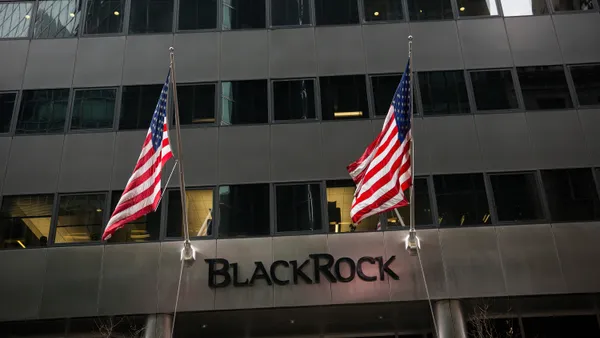Dive Brief:
- Amid a sustainability push from regulators and investors, just one-fifth of organizations say they’re meeting or exceeding their decarbonization goals, according to a new study from Engie Impact, a consulting subsidiary of French multinational utility company Engie. The study’s findings are based on responses received by 515 senior decision makers across industries during the third quarter of 2023.
- Although two thirds of surveyed organizations said they put in place some form of carbon reduction commitment, the lack of coherent focus, internal governance bottlenecks, budgetary constraints and data challenges are impeding progress, Engie Impact reported.
- “A lot of roadblocks to achieving goals are really cross-functional and can’t be solved by one group or team alone,” Abby Davidson, managing director of strategy and implementation at Engie Impact, told ESG Dive. “Ultimately, decarbonization is a business transformation,” requiring alignment across business units, she said.
Dive Insight:
Decarbonization efforts have gathered momentum across companies as laws and regulations — including the European Union’s Corporate Sustainability Reporting Directive, the passage of two California climate disclosure bills in October, and the Securities and Exchange Commission’s climate reporting proposal — add pressure on leaders to show results.
However, despite this increase in demand for transparency, corporations have struggled to implement their sustainability initiatives and decarbonization solutions. The report identified five major roadblocks to execution: Multiple business priorities; governance and decision making complexity; limited budgets; technology and tracking impediments; and a lack of internal skill sets.
A key problem is programs are often implemented in a piecemeal way, according to Davidson.
Engie Impact’s research found many organizations take a “siloed approach” to decarbonization and treat it like any other corporate initiative. As a result, they fail to tap into the benefits that come from a more holistic way of advancing decarbonization strategy, one which requires organizations to acknowledge the complexity of meeting long-term carbon reduction goals and recognizes the scale of the effort. Such an approach also entails a coordinated approach across the organization, where all business units are able to help advance a common set of objectives.
More than one-third of respondents said their organization takes a hands-off approach to decarbonization, deeming it low priority or as an isolated approach with minimal cross-fertilization. Further, 1 in 5 organizations surveyed said their business model is not compatible with long-term decarbonization commitments.
“Executives who embrace a holistic approach do so knowing it necessitates a fundamental reassessment of how their business functions,” the study noted.
Poor data management stalls execution
Ineffective data management can stand in the way of decarbonization implementation, a challenge identified by a large swath of survey respondents. Two thirds of respondents said meeting long-term decarbonization commitments would require a complete transformation or significant change in how their organizations manage technology and data. Only 40% of organizations said they have a centralized repository for decarbonization data, or what researchers called a “single source of truth for decarbonization data” in their organizations.
“You can't make progress or monitor what you can't measure, and so I think companies aren't set up to measure emissions data … this is a transformation [needed] in how they gather data and measure data,” Davidson said.
The top three metrics used by organizations to measure success included the overall reduction in scope 1 and scope 2 emissions; long-term financial return on investment; and impact on brand perception and value.
In resource-constrained times — budget and investment constraints were the top inhibitor to implementation, according to respondents — Davidson stressed the importance of a long-term view when assessing impact of decarbonization initiatives.
“What we encourage companies to look at … a total cost of ownership model, so looking at a broader perspective on the variables that go into owning a particular asset and looking at the holistic picture over time,” she said.
Companies, she added, also need to be open to new ways to finance decarbonization efforts, especially among firms that can’t allocate capital expenditures for the transformation of manufacturing facilities.
“Engie and others have models in the market [that bring] energy savings as-a-service where we will own the asset and the company will pay it back through energy savings and keep the capital expenditure off their books,” Davidson said.
Getting buy-in at the top
The study said progress on decarbonization should be championed at the executive and board levels, but only one-third of executives surveyed described their board as “decarbonization champions.”
“Boards are under increasing pressure to have people on the board of directors who understand and can effectively govern decarbonization strategy for the business,” Davidson said. “It’s very important for the board to oversee and be able to govern decarbonization as they would any business transformation.”
Engie Impact commissioned research firm Meridian West to conduct its survey.
Clarification: The story has been updated to reflect that Engie Impact, a subsidiary of Engie, released the report.











